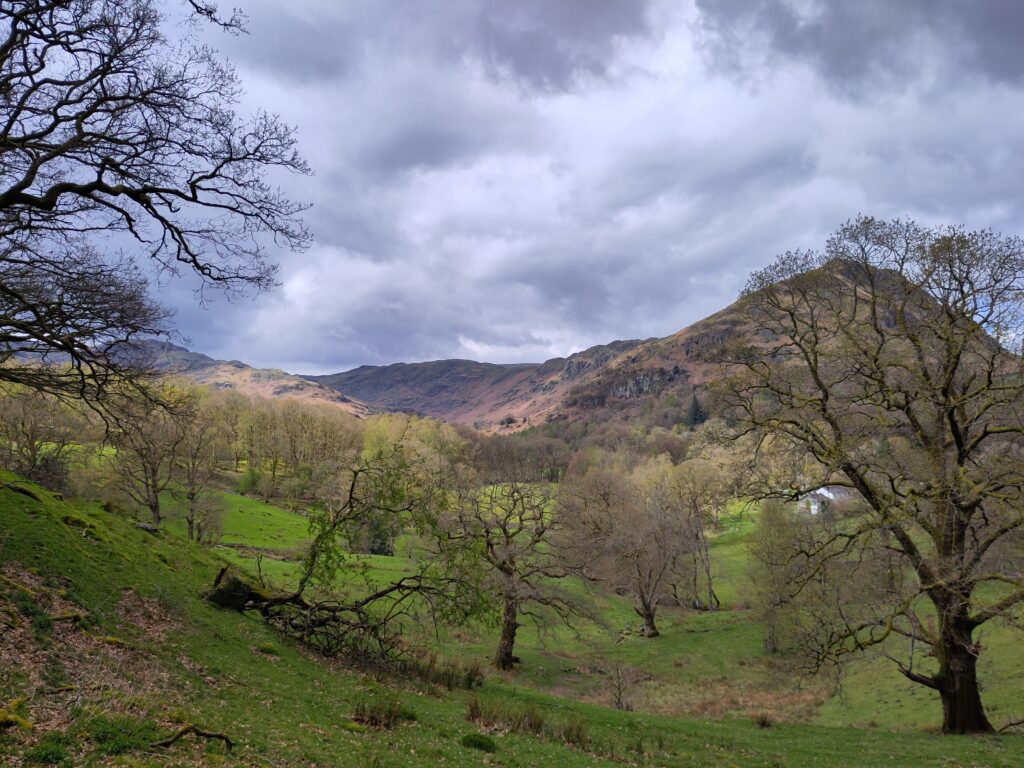Mark Russ shares his experience of the challenges of being in community and how he came to appreciate ‘Blessed Community’.

As Quakers we hope for a world where everyone’s inherent worth is recognised, and where everyone lives in right relationship with each other and the rest of creation. Quakers have called this vision the ‘Blessed Community’. The fulfilment of this hope might seem a long way off, but it’s possible to taste the ‘Blessed Community’ in the present. For me, I taste it when I’m in community with others, when we care for and love one another. I taste it when our hearts are collectively joined together with God, as early Quaker Francis Howgill experienced.
But loving each other isn’t easy. The more we love each other, the more we can hurt each other. Being a community can be a hard, painful struggle. Forces that work against the ‘Blessed Community’ – racism, sexism, ableism, transphobia, ageism, homophobia –are present in our Quaker community, in us. Building the ‘Blessed Community’ means valuing those who the powerful reject, and acknowledging how we use our power to reject others. Psalm 133 says that people living together in unity is like precious oil. Living together in true community is precious and costly, and because it’s costly it’s also rare.
Four stages of community
In his book The Different Drum, M. Scott Peck describes four stages of community. The first stage is pseudo-community, or ‘pretend’ community. This is where we fake it with politeness. We avoid conflict. When people annoy us or upset us, we keep quiet. We try and ignore the ways we are different in the hope that we are all ‘nice people’ who can just get along. We think being ‘Quakerly’ is enough to build the ‘Blessed Community’.
The second stage is chaos. This is when we can’t ignore our differences anymore and we try to get rid of them by making everybody the same. It’s a time of fighting that goes nowhere. One way to escape chaos is to ‘escape into organisation’, creating rules and committees to control the chaos. But do rules and committees make a community? Chaos can break a community, but perhaps fighting with each other is better than pretending we’re not divided.
The third stage is emptiness. This is the hardest part, but it’s the way we get to real, inclusive community. This is where we let go of our expectations, our ideals, the need to fix and control things, and letting go of these things can hurt.
Once the community has gone through the pain of emptiness, it enters the fourth stage. This is real community, where everyone is accepted for who they are, and able to become more and more themselves. Reaching this stage doesn’t mean the hard work is over. Sometimes the community might find itself being a pretend community again, or back in chaos, and will have to do the difficult work of emptying itself once more.
The challenge of community
Here’s the story of how I learnt about these stages of community the hard way. I think the hard way is the only way to learn them. My husband and I spent seven months living and working in a place called the Othona Community in Essex. It’s sort of like a Christian holiday camp, on the coast next to a beautiful seventh-century chapel. We cooked, cleaned, and welcomed guests. Visitors would say to me, ‘This is such a wonderful place! It must be great to live here all the time.’ I would smile and nod, thinking how difficult it was to live at Othona.
After five months, I was tired of the noisy, ungrateful guests. I was fed up with the people I worked with. Little things created big arguments. I had reached the end of my tether. I couldn’t survive on pretend-community. Community wasn’t going to happen because ‘we’re all nice people’. I looked at everyone around me and thought ‘You’re not nice people. I hate you all!’ Then I looked at myself, seeing how angry I was, hating what I saw. I wasn’t the nice, good person I wanted to be. I had left pretend-community behind. I was in a state of chaos.
I told my husband I wanted to leave. He convinced me to create an ‘Othona survival strategy’. This included the decision to go to the chapel to pray every morning and every evening, even if we had no guests, even if we were the only people there. The strategy worked. At Othona, chapel ends by holding hands in a circle, looking into each other’s faces, and saying ‘the grace’: ‘May the grace of our Lord Jesus Christ, the love of God and the fellowship of the Holy Spirit, be with us all, evermore, Amen.’ In order to wish grace, love and fellowship to annoying colleagues and guests, I had to forgive them, just as they were forgiving me for all the ways I had annoyed them that day. Grace isn’t something you earn or deserve. I’ve heard it said that in every community there’s at least one person who is ‘extra grace required’, someone who needs a great deal of grace extended to them. At Othona I learned that sometimes that person is me.
It was in this way I entered emptiness. I emptied myself of expectations that my colleagues would never meet. I emptied myself of the need to be a good, perfect person. I accepted myself as a flawed, angry, annoying person in need of my community’s forgiveness, just as they were in need of mine. Once I’d let go of all these things, I realised I couldn’t build true community through my own strength. It can only exist through the power of the Spirit. True community doesn’t just appear; it needs constant work. If community is a fire, then it’s fuelled by grace, by forgiving each other, as Jesus said, seventy times seven. It’s always a work in progress.
Not ideal but blessed
Dietrich Bonhoeffer said that community is destroyed when we love our idea of community more than we love the people in it. Although Quakers have this hope of the Blessed Community, my own version of the perfect Quaker community never has, and never will, exist. In order to be part of the Quaker community, I have to kill my ideal Quaker community, working with the messy, imperfect bunch of people around me, accepting that I’m messy and imperfect too. In this way we can discover a shared vision of the Blessed Community, better than anything we could come up with individually.
I’m sure there are some meetings that never move beyond the pretend-community stage, or who are keeping chaos at bay through rules and committees. Conflict in our meetings shatters the illusion that we are good, peaceful, ‘Quakerly’ Quakers. But conflict can be a sign of growth. It’s is a natural part of community life. If we want to be a truly inclusive, a truly blessed community, we must be prepared for conflict, to keep getting it wrong and starting again, to ‘live adventurously’ with all the risks that involves. If we have come to Quakers for a quiet life, then the only sort of community we will find is a pretend one.



